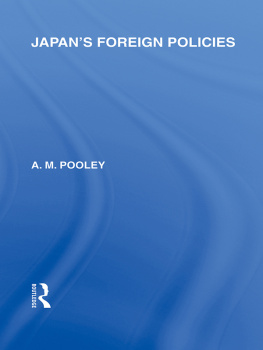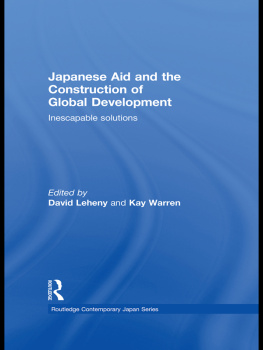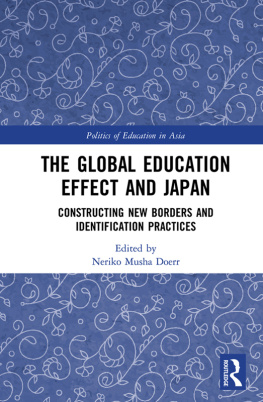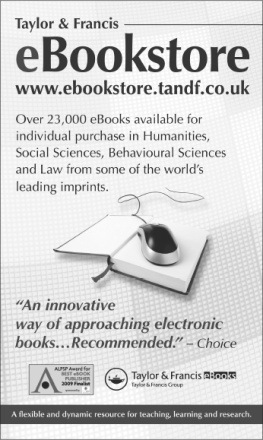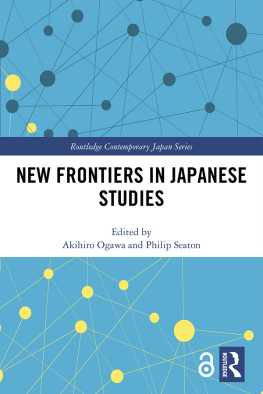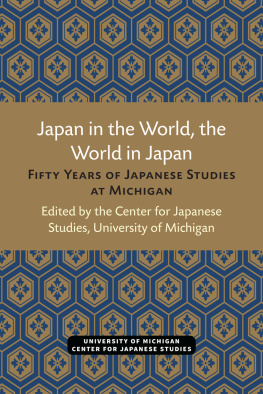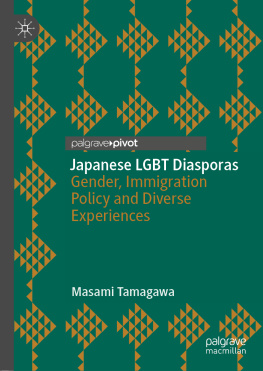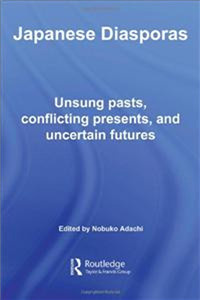ROUTLEDGE LIBRARY EDITIONS: JAPAN
JAPANS FOREIGN POLICIES
JAPANS FOREIGN POLICIES
A.M.POOLEY
Volume 70

LONDON AND NEW YORK
First published in 1920
This edition first published in 2011
by Routledge
2 Park Square, Milton Park, Abingdon, Oxon, OX14 4RN
Simultaneously published in the USA and Canada
by Routledge
270 Madison Avenue, New York, NY 10016
Routledge is an imprint of the Taylor & Francis Group, an informa business
This edition published in the Taylor & Francis e-Library, 2010.
To purchase your own copy of this or any of Taylor & Francis or Routledges collection of thousands of eBooks please go to www.eBookstore.tandf.co.uk.
1920 A.M.Pooley
All rights reserved. No part of this book may be reprinted or reproduced or utilised in any form or by any electronic, mechanical, or other means, now known or hereafter invented, including photocopying and recording, or in any information storage or retrieval system, without permission in writing from the publishers.
British Library Cataloguing in Publication Data
A catalogue record for this book is available from the British Library
ISBN 0-203-84400-9 Master e-book ISBN
ISBN 13:978-0-415-56498-4 (Set)
eISBN 13:978-0-203-84317-8 (Set)
ISBN 13:978-0-415-58837-9 (Volume 70)
eISBN 13:978-0-203-84400-7 (Volume 70)
Publishers Note
The publisher has gone to great lengths to ensure the quality of this reprint but
points out that some imperfections in the original copies may be apparent.
Disclaimer
The publisher has made every effort to trace copyright holders and would
welcome correspondence from those they have been unable to trace.
JAPANS FOREIGN POLICIES
BY
A.M.POOLEY
Late Exhibitioner at Clare College, Cambridge
Author of
Japan at the Cross Roads, The Secret Memoirs of Count Hayashi,
(All rights reserved)
The immediate duty of the Western Powers is to undo all that has been done to weaken China.
The late Sir CLAUDE MACDONALD, K.C.M.G., K.C.B., etc. H.B.M.s Minister at Peking, 18981902, and H.B.M.s Minister and Ambassador at Tokio 190212.
What happens between the time a sheeps sheep and when it appears on the table as mutton cutlets in paper frills ?N.Y.Life.
PREFACE
THE author presents his apologies to the critics whose duty it may be to read the following chapters. They were originally written in 1915, as part of a larger volume, the publication of which was prevented by the exigencies of war. The chapters dealing with internal affairs were published in Japan at the Cross Roads in 1917. After the unexpectedly favourable reception accorded to that work and to a previous volume, The Secret Memoirs of Count Tadasu Hayashi, the pitcher has some trepidation in going to the well for a third time.
The present volume consists of the chapters of the MSS. referred to above dealing with Japans Foreign Affairs, with such extension and elaboration as may have been necessary to bring it up to date. To a large degree, therefore, the matters principally related belong to the years 1911 to 1914. But as the events of those years are closely united to the events which have since occurred in China, they are not altogether without interest to students of Far Eastern affairs.
So far as those years are concerned the author has relied almost entirely on his own memoranda. For the subsequent years he is indebted to correspondence, and to the files of The Japan Chronicle, The Japan Gazette, and the China Treaty Port foreign papers, all of which are mines of great historical value. Incidentally it should be remarked that there is no file of these papers available at any British institution, which appears to be a serious oversight of most important raw material for future historians. The Japan and China Treaty Port foreign papers very frequently contain articles of the first im portance, translated from the vernacular press. These original articles are often written by leading politicians and statesmen, and may be readily identified. Count Mutsus and Count Hayashis contributions to Japanese papers will readily occur to the mind as examples of this, whilst Tang-shao-Yi, Wu-ting-Fang and Liang-chi-Chao have all been prolific writers in the Chinese vernaculars.
During the past five years the world has travelled so far and so fast that a complete revolution has occurred in the Far East almost without people in this country knowing it. Events are rapidly moving in that part of the globe, and what the outcome will be lies on the knees of the gods. In America there is a distinct foreboding that, in the not distant future, another war is looming up. The secular menace, which overhung Europe for so many years, has shifted to the Pacific. History is a pendulum, which swings with inexorable exactitude.
The chapters which follow may help to some small degree to explain how the cloud, which in Count Hayashis time was no larger than a mans hand, has spread to its present proportions.
In a war between America and Japan, which is to-day a proximate possibility, sympathies in this country would surely be with our cousins. To what extent our sympathies might go is another question. But one thing is perfectly certain: should they go to extremes then we should be well provided with occupation in quenching political arson in our Asiatic dominions. Japans policy is to control China, and, through China, to dominate Asia. The frontal attack on Asia through China is temporarily stopped. But there are back-doors, and one of them is India. Fortunately the Indian authorities are wide awake to the dangers.
A.M.P.
LONDON,
October 30, 1919.
Japans Foreign Policies
CHAPTER I
JAPAN AND THE ANGLO-JAPANESE ALLIANCES
Cest ce quon ne dit pas quexplique ce quon dit.
SINCE the publication of the late Count Hayashis Memoirs foreign estimates of Japanese diplomacy have had to be revised. As will be remembered, the late Count, who filled the offices of Vice-Minister and Minister of Foreign Affairs, Minister at Peking and St. Petersburg, and Minister and Ambassador at London, discharged an arrow from the tomb in the shape of an extremely piquant memorandum of the negotiations which led up to the signature of the first Anglo-Japanese Treaty of Alliance.
Although the Japanese Government tried every possible means at its disposal, short of assassination, to suppress this highly important historical document, the writer, then correspondent of Reuters at Tokio, succeeded in smuggling out two translations, one of which was published in London and the other in Shanghai. The chorus of amazed astonishment which greeted the publication was justification enough of the Japanese Governments efforts at suppression, futile though they had been. The studious silence of the chancelleries was at least presumptive of the substantial truth of the revelations.
The Memoirs exposed in the most vivid manner the

